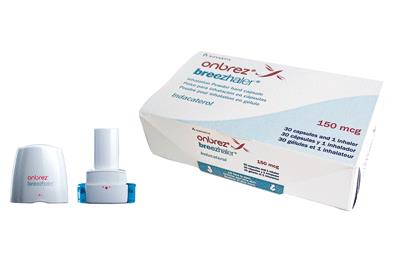Cipla Limited v. Novartis AG and Ors.
Cipla Limited v. Novartis AG and Ors.
2017 (70) PTC 80 (Del)
Respondents (Novartis AG and Ors.) filed a suit for permanent injunction seeking to restrain the Appellant (Cipla Ltd.) from infringing its Patent. Along with the suit, Respondents had also filed an application for interim relief of temporary injunction during the pendency of the suit,
Patent pertained to ‘INDACATEROL’, a bronchodilator and provides symptomatic relief to persons suffering from chronic obstructive pulmonary disease (COPD).

A temporary injunction was granted by the Ld. Single Judge of the Hon’ble High Court of Delhi restraining the Respondent from violating the said Patent. Against the said order of grant of interim injunction, the present appeal was filed. However, the injunction had been granted until the determination by the competent authority of the pleas raised by Cipla for seeking the compulsory licence, if so filed.
Respondents did not manufacture ‘INDACATEROL’ in India but in Switzerland and the same was imported into India.
Appellant’s Arguments:
- Respondents do not manufacture ‘INDACATEROL’ (ONBREZ) in India. Only small quantities are imported catering to a negligible number of patients. Thus, Respondents are not working the patent in India and consequently are not entitled to an injunction.
- Rights of patentees would be subject to other provisions in the Act, including Section 83 of Patents Act, 1970 (General principles applicable to working of patented inventions).
- Price of the Respondents’ ‘INDACATEROL’ was exorbitant as compared to ‘INDACATEROL’ manufactured, supplied and sold by the Appellant. Price of the Respondents’ product was five times that of the price of the Appellant’s product.
- Only about 4,000 patients would get the benefit of the drug ‘INDACATEROL’ as against 1.5 crore patients. Thus, public interest would not be served if an injunction were allowed to remain against the Appellant.
Respondents’ arguments:
- Respondents did not manufacture the product in India did not mean that the patent was not being worked in India because sufficient quantities of imports were made which would serve the needs of the patients suffering from COPD.
- Right of patentees under Section 48 was in no manner reduced or circumscribed by the provisions of Section 83, as the latter provision fell under an entirely different Chapter and had an entirely different objective.
- While public interest considerations may be a relevant factor in certain circumstances such as in the case of life saving drugs, it cannot by itself outweigh the rights of a patentee in the case of infringement of the patent as provided under the said Act.
- Provisions of Section 83 are not in respect of the rights of the patentees, but to the powers to be exercised by the controllers and other authorities as conferred on them by Chapter XVI of the said Act which relates to Working of patents, Compulsory Licenses and Revocation. Therefore, the element of public interest, which is sought to be introduced by the Appellant through the route of Section 83 of the said Act, would not, in any way, impinge upon the rights of the patentees
Court’s Observations:
- There is no credible challenge to the Respondent’s patent No. 222346. Therefore, prima facie, the Respondent is straightaway entitled to an injunction.
- Although Section 48 is subject to the other provisions contained in the Act and the conditions specified in Section 47, this would only have relevance where the other provisions of the Act impinge upon the provisions or the rights of the patentees under Section 48. Section 83 is not one such provision. Section 83 itself is without prejudice to the other provisions in the said Act and, therefore, is also without prejudice to the provisions contained in Section 48 of the said Act.
- It is not at all necessary that for a patent to be worked in India, the product in question must be manufactured in India. All that is to be seen is that the imports are of a sufficient quantity so as to meet the demands for the product. This is of particular importance in the case of pharmaceutical products.
- We cannot make a definitive conclusion as to whether the extent of imports is not sufficient for meeting the demands of COPD patients in India. This would be a matter of evidence which can only be thrashed out in the course of a trial.
- INDACATEROL also does not fall in the category of a life saving drug, such as a cancer medicine.
- We do not feel that the Appellant has even made out a case that public service would be disserved by the grant of an injunction.
Appeal Dismissed.
